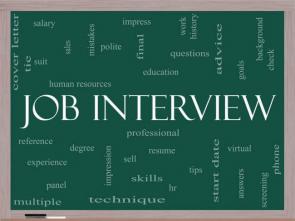
As with most developments, there are both positives and negatives associated with every change.
On the plus side, when you want to speak with someone, research an issue, gather information, or check on developments, you can now do so almost instantaneously. You can also work from nearly anywhere, with firms increasing their use of remote access technology, centralized computing and, for litigators, e-filing, which removes the necessity of physically walking down to the courtroom to turn in your brief before the deadline (not in every case or court, obviously, but everything is consolidating towards an e-filing standard).
The downside to this overall advancement in technology, information access, and communications, as most attorneys have likely come to realize, is that there is an associated expectation that you will be available nearly every second of every day, whether it is to answer a client call, respond to a partner email, or perform last-minute "emergency" research because some district court judge out of your jurisdiction decided to drop an opinion contrary to most all precedent that either helps or hurts your case, and now you need to re-write a substantial portion of your brief in the 24 hours before the e-filing deadline. With the competition for clients (and thus the pressure to be immediately and comprehensively responsive at all times) steadily increasing, many attorneys, and especially associates, have found maintaining a work/life balance to be more difficult as time goes on.
While these developments in general technology impact the way attorneys work, they also have had an impact on the job search and interview process that can similarly be a positive or a negative for would-be lateral candidates.
On the plus side for job searchers, the rise of electronic technology has allowed attorneys many more avenues to discover new job listings, and also made the application process more efficient (assuming you find emailing a resume and cover letter easier than having to print and mail it). You can also discover a lot more information about a firm from not only the firm's website, but also online legal publications, news articles, and the like.
The downside of this efficiency is that the opportunity to apply to positions has increased across the board, and thus you are going to face a lot more competition than ever before. The easier a job listing is to apply for, and the more popular or well-known the law firm is, the more candidates will likely be applying for that position, increasing the likelihood that your resume is going to get buried in a stack, or passed over for a "more qualified" candidate. A lot of firms have even moved to online application formats that require you to list your law school and class year, allowing them to filter out "lesser" candidates, even if those candidates have stronger work experience than a peer from a "better" law school (hence why networking and having an "in" to a firm, or working with a solid recruiter, are increasingly important even though you may be aware of the opportunities through your own research).
In light of this, and to get to the main point of this article, I cannot stress enough how important it is to do your research and tailor your application (and interview answers, should you be fortunate enough to be granted an interview) to not only the specific firm for which you are applying, but also the office, the practice group, and the individual attorneys who will be reviewing your materials, speaking with you, and ultimately making the hiring decision.
You are pitching yourself as the absolute best fit out of all the possible candidates, and you should assume that there are many qualified candidates with backgrounds just as good, if not more impressive on paper and in experience, than yours. It is currently a buyer's market, and firms most often have the luxury of waiting for the "right fit" for the position in terms of class year, credentials, experience, and personality. The more you know about the firm and the partners, their clients and business, recent developments in their practice area, the growth trajectory and recent successes of the firm and its attorneys, etc., the more you can show that not only have you done your due diligence, but you can think ahead about how to best market yourself and your skillset to the firm.
This applies to both your resume and your interview preparation and answers. Find out what part of your practice experience best fits with the work the firm's practice group and partners have done within the past few years, and highlight that experience front and center so that it stands out when the partners are reviewing resumes. You would not believe how frequently a candidate gets passed over because the person responsible for reviewing a stack of resumes was not able to pick out the relevant experience from their work section. Make it prominent, and it will get noticed.
- See Interviewing Tips for more information
Do your diligence, research the firm, the practice group, the partners, the clients and client matters, their recent success, and think hard about how your background will specifically benefit the firm, and you will significantly increase your odds of an interview and hopefully an offer.
See 6 Things Attorneys and Law Students Need to Remove from Their Resumes ASAP If They Want to Get Jobs with the Most Prestigious Law Firms for more information.
As always, best of luck in your search!
About Harrison Barnes
No legal recruiter in the United States has placed more attorneys at top law firms across every practice area than Harrison Barnes. His unmatched expertise, industry connections, and proven placement strategies have made him the most influential legal career advisor for attorneys seeking success in Big Law, elite boutiques, mid-sized firms, small firms, firms in the largest and smallest markets, and in over 350 separate practice areas.
A Reach Unlike Any Other Legal Recruiter
Most legal recruiters focus only on placing attorneys in large markets or specific practice areas, but Harrison places attorneys at all levels, in all practice areas, and in all locations-from the most prestigious firms in New York, Los Angeles, and Washington, D.C., to small and mid-sized firms in rural markets. Every week, he successfully places attorneys not only in high-demand practice areas like corporate and litigation but also in niche and less commonly recruited areas such as:
- Immigration Law
- Workers Compensation
- Insurance
- Family Law
- Trust and Estate
- Municipal law
- And many more...
This breadth of placements is unheard of in the legal recruiting industry and is a testament to his extraordinary ability to connect attorneys with the right firms, regardless of market size or practice area.
Proven Success at All Levels
With over 25 years of experience, Harrison has successfully placed attorneys at over 1,000 law firms, including:
- Top Am Law 100 firms such including Sullivan and Cromwell, and almost every AmLaw 100 and AmLaw 200 law firm.
- Elite boutique firms with specialized practices
- Mid-sized firms looking to expand their practice areas
- Growing firms in small and rural markets
He has also placed hundreds of law firm partners and has worked on firm and practice area mergers, helping law firms strategically grow their teams.
Unmatched Commitment to Attorney Success - The Story of BCG Attorney Search
Harrison Barnes is not just the most effective legal recruiter in the country, he is also the founder of BCG Attorney Search, a recruiting powerhouse that has helped thousands of attorneys transform their careers. His vision for BCG goes beyond just job placement; it is built on a mission to provide attorneys with opportunities they would never have access to otherwise. Unlike traditional recruiting firms, BCG Attorney Search operates as a career partner, not just a placement service. The firm's unparalleled resources, including a team of over 150 employees, enable it to offer customized job searches, direct outreach to firms, and market intelligence that no other legal recruiting service provides. Attorneys working with Harrison and BCG gain access to hidden opportunities, real-time insights on firm hiring trends, and guidance from a team that truly understands the legal market. You can read more about how BCG Attorney Search revolutionizes legal recruiting here: The Story of BCG Attorney Search and What We Do for You.
The Most Trusted Career Advisor for Attorneys
Harrison's legal career insights are the most widely followed in the profession.
- His articles on BCG Search alone are read by over 150,000 attorneys per month, making his guidance the most sought-after in the legal field. Read his latest insights here.
- He has conducted hundreds of hours of career development webinars, available here: Harrison Barnes Webinar Replays.
- His placement success is unmatched-see examples here: Harrison Barnes' Attorney Placements.
- He has created numerous comprehensive career development courses, including BigLaw Breakthrough, designed to help attorneys land positions at elite law firms.
Submit Your Resume to Work with Harrison Barnes
If you are serious about advancing your legal career and want access to the most sought-after law firm opportunities, Harrison Barnes is the most powerful recruiter to have on your side.
Submit your resume today to start working with him: Submit Resume Here
With an unmatched track record of success, a vast team of over 150 dedicated employees, and a reach into every market and practice area, Harrison Barnes is the recruiter who makes career transformations happen and has the talent and resources behind him to make this happen.
A Relentless Commitment to Attorney Success
Unlike most recruiters who work with only a narrow subset of attorneys, Harrison Barnes works with lawyers at all stages of their careers, from junior associates to senior partners, in every practice area imaginable. His placements are not limited to only those with "elite" credentials-he has helped thousands of attorneys, including those who thought it was impossible to move firms, find their next great opportunity.
Harrison's work is backed by a team of over 150 professionals who work around the clock to uncover hidden job opportunities at law firms across the country. His team:
- Finds and creates job openings that aren't publicly listed, giving attorneys access to exclusive opportunities.
- Works closely with candidates to ensure their resumes and applications stand out.
- Provides ongoing guidance and career coaching to help attorneys navigate interviews, negotiations, and transitions successfully.
This level of dedicated support is unmatched in the legal recruiting industry.
A Legal Recruiter Who Changes Lives
Harrison believes that every attorney-no matter their background, law school, or previous experience-has the potential to find success in the right law firm environment. Many attorneys come to him feeling stuck in their careers, underpaid, or unsure of their next steps. Through his unique ability to identify the right opportunities, he helps attorneys transform their careers in ways they never thought possible.
He has worked with:
- Attorneys making below-market salaries who went on to double or triple their earnings at new firms.
- Senior attorneys who believed they were "too experienced" to make a move and found better roles with firms eager for their expertise.
- Attorneys in small or remote markets who assumed they had no options-only to be placed at strong firms they never knew existed.
- Partners looking for a better platform or more autonomy who successfully transitioned to firms where they could grow their practice.
For attorneys who think their options are limited, Harrison Barnes has proven time and time again that opportunities exist-often in places they never expected.
Submit Your Resume Today - Start Your Career Transformation
If you want to explore new career opportunities, Harrison Barnes and BCG Attorney Search are your best resources. Whether you are looking for a BigLaw position, a boutique firm, or a move to a better work environment, Harrison's expertise will help you take control of your future.
Submit Your Resume Here to get started with Harrison Barnes today.
Harrison's reach, experience, and proven results make him the best legal recruiter in the industry. Don't settle for an average recruiter-work with the one who has changed the careers of thousands of attorneys and can do the same for you.
BCG Attorney Search matches attorneys and law firms with unparalleled expertise and drive, while achieving results. Known globally for its success in locating and placing attorneys in law firms of all sizes, BCG Attorney Search has placed thousands of attorneys in law firms in thousands of different law firms around the country. Unlike other legal placement firms, BCG Attorney Search brings massive resources of over 150 employees to its placement efforts locating positions and opportunities its competitors simply cannot. Every legal recruiter at BCG Attorney Search is a former successful attorney who attended a top law school, worked in top law firms and brought massive drive and commitment to their work. BCG Attorney Search legal recruiters take your legal career seriously and understand attorneys. For more information, please visit www.BCGSearch.com.
Harrison Barnes does a weekly free webinar with live Q&A for attorneys and law students each Wednesday at 10:00 am PST. You can attend anonymously and ask questions about your career, this article, or any other legal career-related topics. You can sign up for the weekly webinar here: Register on Zoom
Harrison also does a weekly free webinar with live Q&A for law firms, companies, and others who hire attorneys each Wednesday at 10:00 am PST. You can sign up for the weekly webinar here: Register on Zoom
You can browse a list of past webinars here: Webinar Replays
You can also listen to Harrison Barnes Podcasts here: Attorney Career Advice Podcasts
You can also read Harrison Barnes' articles and books here: Harrison's Perspectives
Harrison Barnes is the legal profession's mentor and may be the only person in your legal career who will tell you why you are not reaching your full potential and what you really need to do to grow as an attorney--regardless of how much it hurts. If you prefer truth to stagnation, growth to comfort, and actionable ideas instead of fluffy concepts, you and Harrison will get along just fine. If, however, you want to stay where you are, talk about your past successes, and feel comfortable, Harrison is not for you.
Truly great mentors are like parents, doctors, therapists, spiritual figures, and others because in order to help you they need to expose you to pain and expose your weaknesses. But suppose you act on the advice and pain created by a mentor. In that case, you will become better: a better attorney, better employees, a better boss, know where you are going, and appreciate where you have been--you will hopefully also become a happier and better person. As you learn from Harrison, he hopes he will become your mentor.
To read more career and life advice articles visit Harrison's personal blog.





